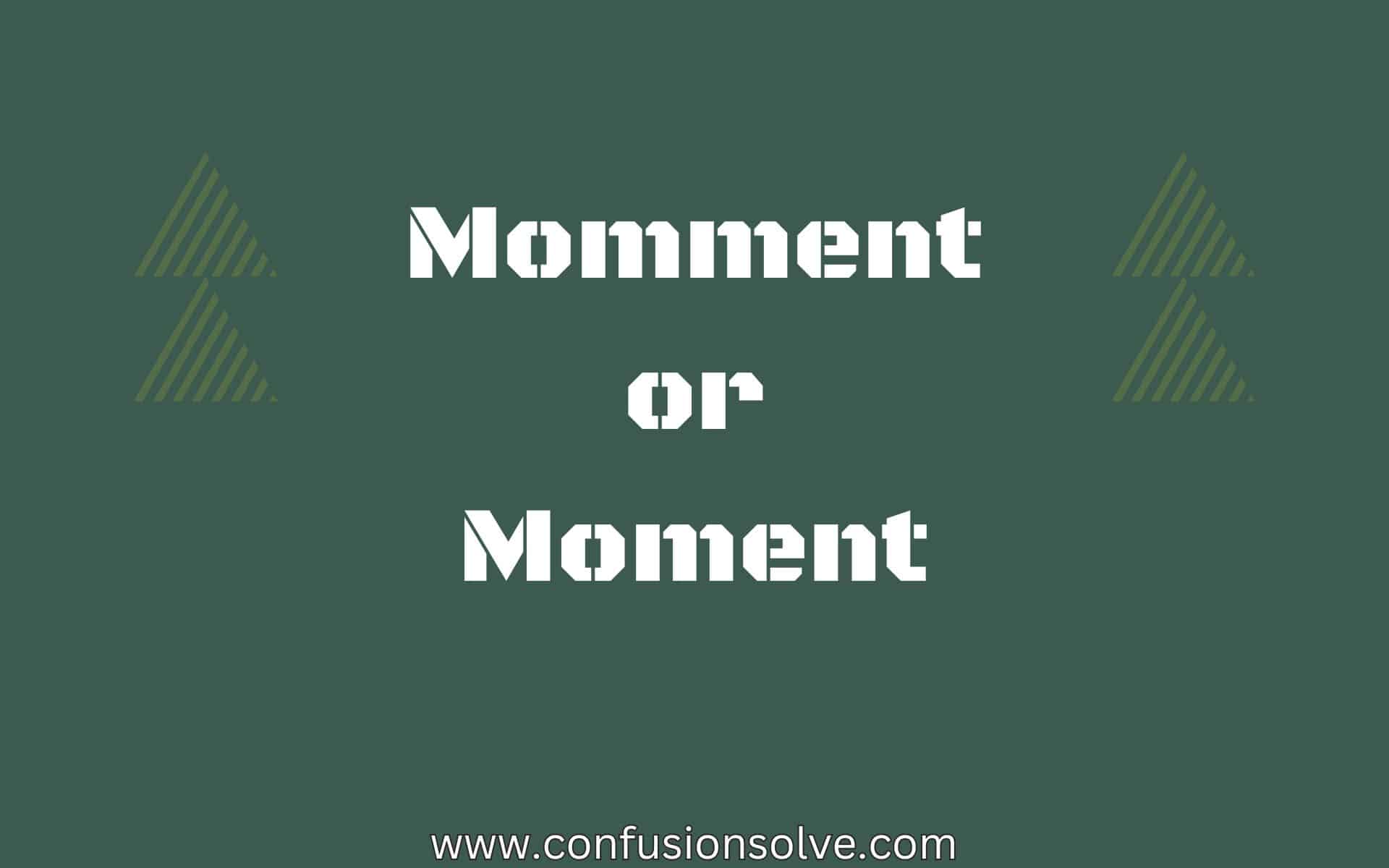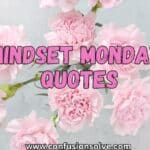Have you ever paused mid-sentence, wondering if it’s “moment” or “momment”? You’re not alone. This tiny spelling dilemma trips up countless writers, students, and professionals across the USA.
Whether you’re crafting an email, writing an essay, or posting on social media, using the correct spelling matters. “Moment”—the right way to spell it—is more than just a word; it’s a gateway to expressing life’s most significant events, from everyday joys to pivotal turning points.
On the flip side, “momment” is a common typing mistake that can sneak into even the most careful writing. Let’s clear up the confusion and explore why getting it right is so important in professional communication and beyond.
Momment or Moment: What’s The Difference?
The word “moment” refers to a brief period of time or a significant event. On the other hand, “momment” is simply a misspelled word. Many people confuse the two because of the double “m” sound in pronunciation. However, “momment” is not a valid word in the English language.
Using the correct spelling is crucial, especially in academic writing and professional communication. Spelling errors like “momment” can distract readers and undermine your credibility. Tools like spelling tools and grammar check software can help you catch these mistakes before they slip through.
Exploring “Momment”
“Momment” is a classic example of an orthographic error detection challenge. It’s a typing mistake that often occurs due to the way we pronounce the word. The double “m” sound can trick our brains into adding an extra letter.
Despite its frequent appearance in digital communication errors, “momment” has no place in formal writing. Always double-check your work to ensure you’re using the correct spelling.
Understanding the Term “Moment”
A moment is more than just a brief period of time. It can also represent a pivotal turning point in life, like a graduation or a wedding. The word comes from the Latin “momentum,” which means movement or influence.
In everyday language, we use “moment” to describe both literal and figurative events. For example, “Wait a moment” refers to a short time, while “That was a defining moment” highlights a significant event.
Examples of “Moment” in Sentences
Here are some examples of how to use “moment” correctly:
- “She paused for a moment to think.”
- “The moment he walked in, everyone cheered.”
- “This is a moment I’ll never forget.”
These sentences show the versatility of the word in different contexts.
The Power of Moments
Moments shape our lives. They can be small, like a child’s first step, or life-changing, like landing a dream job. These impactful events stay with us forever, creating memories that define who we are.
Think about your own life. What personal moments stand out the most? Maybe it’s a family vacation or a heartfelt conversation. These moments remind us of the beauty and emotional significance of life.
Moment Idioms
English is full of idioms that use the word “moment.” Here are a few popular ones:
- “In the heat of the moment”: Acting impulsively.
- “Seize the moment”: Take advantage of an opportunity.
- “A moment of truth”: A critical decision point.
These phrases show how deeply the concept of a moment is woven into our language.
You may also like:Cubical or Cubicle: What’s the Difference?
Moment Slogans
Brands have long understood the power of the word “moment” to connect with people on an emotional level. One of the most famous examples is Kodak’s slogan, “Capture the moment.” This simple phrase encourages people to preserve their memories through photography, tapping into the universal desire to hold onto significant events and personal moments. It’s not just about taking a picture; it’s about freezing time and keeping a piece of life’s beauty forever.
Another example is Mastercard’s “Priceless Moments” campaign. This slogan highlights the idea that some experiences are so valuable, they can’t be bought. Whether it’s a family dinner or a child’s first steps, these moments are irreplaceable. By using the word “moment,” Mastercard emphasizes the emotional weight of these experiences, making their brand synonymous with creating and cherishing memories.
Brands leverage the emotional significance of “moment” because it speaks to something deeply human. We all want to remember the good times, celebrate milestones, and hold onto the feelings that make life meaningful. Slogans like these remind us that life is made up of moments—big and small—and encourage us to savor them. Whether it’s through a camera lens, a credit card, or a simple pause in our busy lives, these brands inspire us to appreciate the power of moments.
You may also like:Receipt or Recipe: Understanding the Historical Difference
Moment Quotes
Here are some inspiring quotes about moments:
- “Life is not measured by the number of breaths we take, but by the moments that take our breath away.” – Maya Angelou.
- “The best moments in life are the ones you can’t explain.”
These quotes remind us to cherish every moment.
Moment Poets
Poets like Robert Frost and Emily Dickinson often explore the concept of moments in their work. For example, Frost’s poem “The Road Not Taken” reflects on a pivotal turning point in life.
Literature is filled with examples of how moments shape our stories.
Understanding Momment or Moment
A moment is a small but meaningful unit of time. It can refer to a brief period of time, like waiting for a bus, or a specific point in time, like the exact second you achieve a goal. It can also describe a significant event, such as a wedding or graduation. These moments, whether big or small, often leave a lasting impression on our lives.
The word “moment” comes from the Latin word “momentum,” which means movement or influence. This origin reflects how moments can propel us forward, shaping our decisions and experiences. Over time, the word evolved to capture not just physical movement but also the emotional and psychological impact of certain points in time.
What makes “moment” so special is its versatility. In a literal sense, it can describe a split second, like the moment a light turns green. Figuratively, it can represent a life-changing event, such as the moment you realize your true passion. This dual meaning makes the word a powerful tool in both everyday conversation and deeper, more reflective writing. Whether you’re talking about a fleeting second or a milestone, “moment” is a word that resonates universally.
You may also like:Search Results for: Anual Or Annual
Examples of Incorrect Usage of “Momment”
Here are some examples of incorrect usage:
- Incorrect: “That was a special momment for me.”
- Correct: “That was a special moment for me.”
Cultural and Emotional Importance of Moments
Different cultures celebrate moments in unique ways. For example, birthdays and anniversaries are universal, but the traditions vary. These celebrations highlight the emotional significance of significant events.
Moment Usage Across Fields
The word “moment” is used in various fields:
- Physics: Moment of force.
- Photography: Capturing a moment.
- Literature: Pivotal moments in stories.
Practical Tips: When and How to Use “Moment” Correctly
Here’s a quick guide:
- Use “moment” for a brief period or significant event.
- Avoid “momment”—it’s always incorrect.
- Double-check your spelling with tools like Grammarly.
Correct Use of Moment
Always use “moment” in singular or plural forms:
- Singular: “This is a special moment.”
- Plural: “These are the best moments of my life.”
Moment: Definition and Usage
The word “moment” is a versatile term that refers to a brief period of time, a specific point in time, or a significant event. Whether it’s the split second it takes to make a decision or the unforgettable instant of a life-changing achievement, “moment” captures the essence of time in a way that feels both fleeting and profound. Its origins in the Latin word “momentum,” meaning movement or influence, reflect how moments can shape our lives and propel us forward.
In everyday language, “moment” is used in countless ways. It can describe something as simple as waiting for a traffic light to change or as meaningful as the moment you realize you’re in love. Its flexibility allows it to fit seamlessly into both casual conversations and formal writing. For example, you might say, “Give me a moment to think,” or “That was a defining moment in history.” This adaptability makes “moment” one of the most commonly used and universally understood words in the English language.
The importance of “moment” lies in its ability to convey both the passage of time and the weight of experience. It reminds us to pause, reflect, and appreciate the personal moments that make life meaningful. Whether it’s a small, everyday occurrence or a pivotal turning point, “moment” is a word that resonates deeply with everyone, making it an essential part of how we communicate and connect.
Key Points About “Moment” vs. “Momment”
Here’s a summary:
- “Moment” is correct.
- “Momment” is a misspelled word.
- Always proofread your work.
Exploring “Momment”
The word “momment” is a common misspelling of “moment,” often caused by the double “m” sound in pronunciation. While it may seem like a small mistake, using “momment” can undermine the clarity and professionalism of your writing. In formal writing and professional communication, such errors can distract readers and create a negative impression. By paying attention to detail and using tools like spelling tools and grammar check, you can avoid this error and ensure your writing is clear, accurate, and impactful.
You may also like:Potatoes or Potatos: Which Is the Correct Spelling?
Momment or Moment Meaning
The meaning is clear: “moment” refers to time or events, while “momment” has no meaning.
Momment or Moment Spelling
Remember, the correct spelling is “moment.”
Moment vs Moments
Use “moment” for singular and “moments” for plural:
- Singular: “This is my favorite moment.”
- Plural: “These are my favorite moments.”
One of the Best Moment or Moments
When referring to multiple experiences, the correct phrase is **“one of the best moments.”** The word **“moments”** is used here because it indicates a collection of memorable events, not just a single instance. For example, saying, “Graduation was **one of the best moments** of my life,” implies that there were several other equally significant events. Using **“moments”** in this context ensures clarity and accuracy, making your writing more polished and professional.
Moment or Moments Plural
The plural form of “moment” is “moments,” and it is used to describe multiple instances or events. Whether you’re talking about a series of personal moments or a collection of significant events, “moments” helps convey the idea of more than one experience. For example, you might say, “The concert was filled with unforgettable moments,” or “She cherished the quiet moments spent with her family.” Using “moments” allows you to capture the richness and variety of life’s experiences, making your writing more vivid and relatable.
Conclusion
In the end, the difference between “moment” and “momment” is simple but important. “Moment” is the correct spelling, capturing the essence of time, memories, and significant events. On the other hand, “momment” is just a common typing mistake that can easily be avoided with a little attention or the help of spelling tools and grammar check.
Whether you’re writing a heartfelt note, a professional email, or a social media post, using the right spelling matters. It ensures clarity and leaves a positive impression. So, the next time you write about life’s personal moments, remember: it’s always “moment.”
FAQs
- How do you spell moment or momment?
The correct spelling is “moment.” “Momment” is a misspelling. - What is the spelling of a moment?
The correct spelling is “moment.” - What is the correct word for moment?
The correct word is “moment,” meaning a brief period or significant event. - What are the two meanings of moment?
A moment can mean a brief period of time or a significant event in life.










